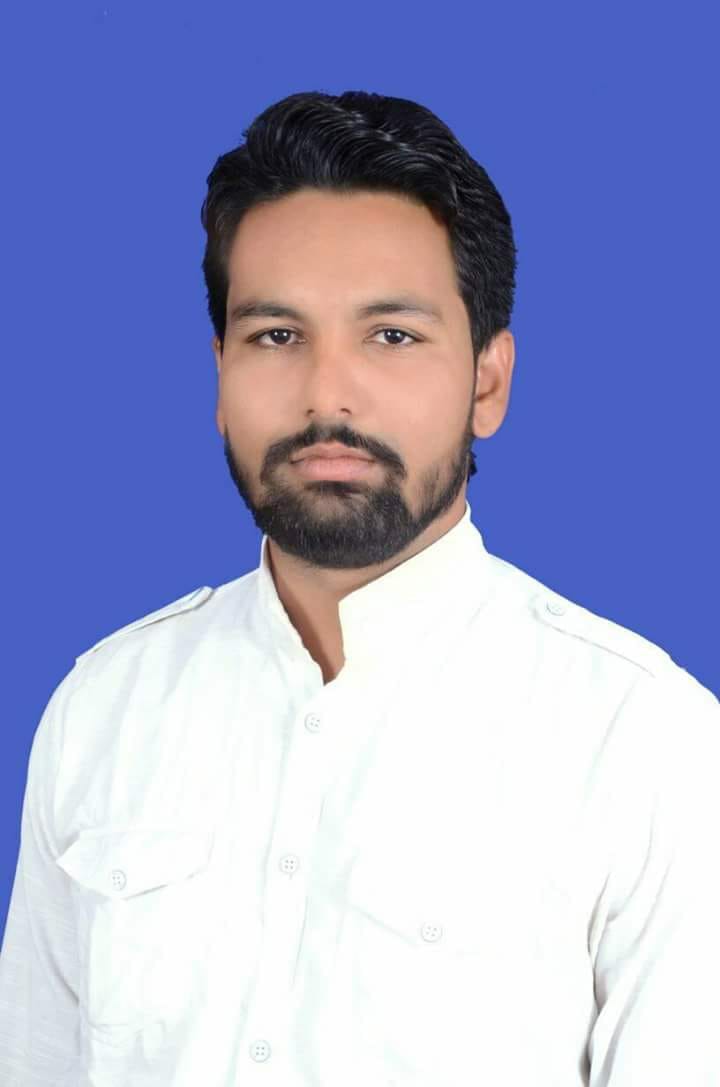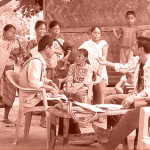
The case of Kallu Ram’s missing Swachh Bharat Mission money
16 October 2018
Kallu Ram and his family were owners of a brand new toilet, it even had a flush, a first for this family from a small village near Jaipur. The family was excited about the new toilet in the house, but making this toilet had left them high and dry. When Kallu was first approached by his village Panchayat to build this toilet, he was a bit apprehensive as they had little money for an extra expense such as this, and so far they were fairly happy going to the field. Then he found out that there was a government scheme called Swachh Bharat Mission (SBM) and he would get paid to build the toilet. Sure, it was an added expense, but the Panchayat was putting pressure and his daughter and son both wanted it. He believed this was perhaps the way forward, and with full faith in the government, the toilet was constructed.
It had now been four months since the construction, but with high usage and construction costs, all the toilet had really done was drain him of his resources. As a small farmer he had a tight budget and the only way he could ever afford this toilet was from the amount he would receive from the government. As per SBM norms the government is required to pay every beneficiary Rs. 12,000 per toilet for a low cost but good quality toilet. Once the toilet is built, beneficiaries are verified on the basis of usage. Kallu Ram had completed all these formalities four months ago and was still longingly awaiting to receive the promised sum. He now felt cheated and dejected as he had tried everything and the only answer he ever got from the Panchayat was, “abhi paisa upar se hi nahin aaya hai (the money has still not been come from the top)”. The SBM money promised to him had gone missing.
Enter Om Prakash Sharma, a smart college student, youth group leader, Nehru Yuva Kendra Block Coordinator and the star of our story. As a block coordinator, Om Prakash had helped many of his community members avail government services. He would soon become the fiscal detective who saved the day for Kallu Ram!

He wanted to find out exactly where the money was stuck. What route had it taken? Had it been allocated and yet not released? Had the centre really not released the money or had the funds just not reached the Panchayat? He knew that the government’s actual expenditure (reported two years after the budget announcement) was often far lower than the actual budget estimate. The slow movement of money was an important reason for this, and the slower the movement the harder it would be for him to track! Oh how he wanted to put his finger on the exact point where the money was stuck- after leaving the central government coffer, on its route to the last mile beneficiary.
You see as a NYK Block Coordinator Om Prakash had recently attended a course called ‘Hum aur Humaari Sarkaar’ conducted by Accountability Initiative where he had learnt about the complications in the fund flow system, the Indian budget system, and how government schemes are formulated and implemented. He now knew why the money often doesn’t reach its stipulated destination on time and where all it can get delayed and this case was his big opportunity to test his knowledge.
So when he first went to the Panchayat office with Kallu Ram, rechecked all the submitted documents and asked the Sarpanch and Panchayat Sachiv about the money, as expected he was told that the money had not come. He knew instantly there was more to this story than met the eye. It had been more than four months since all documents had been submitted, how was it possible that the money had not come? This led our young detective and his ‘client’ to their next stop- the Panchayat Samiti (the block level panchayat office). After some waiting, pleading, sleuthing and questioning they found out that the money had actually been transferred to Kallu Ram a long time ago. But Om Prakash had checked, no money had reached Kallu’s account. And if the money had been deposited where had it gone? This case was getting more and more interesting and Om Prakash more and more excited! He was on a mission and he was now going to find out what happened to the missing SBM money.
Many years of friendship with the peon now came into use, and Om Prakash was led to the Accountant. The man with all the answers to Om Prakash’s questions. The Accountant was a skinny, straight looking man with little time for idle chatter. Om Prakash knew if he wanted to know what had happened to the money, he would need to be quick and direct in his approach. And so Om Prakash began, “Sir, Mr. Kallu Ram here was to be transferred Rs. 12,000 for constructing a toilet under the scheme Swach Bharath Mission, it has been 4 months since he has submitted all his documents and still not received the money. Some members of the Panchayat Samiti claim that the money has definitely been transferred to him but as you can see from his accounts that is not the case, so I demand to know where is the money now and who has it been transferred to if not to him?”
The Accountant immediately agreed to look up the records. The records indeed showed that Kallu Ram had received the money. Both Om Prakash and Kallu Ram were dumbfounded! Om Prakash insisted on looking at the records himself. On closer inspection he found out that a payment had been made in the name of Kallu Ram but the account to which the money had been transferred wasn’t his. There had been an error in writing the account number and instead somebody else in the village had received the money due to him. Om Prakash had traced the money and caught the error.
The Accountant and the Panchayat Samiti apologised to Kallu, though somewhat grudgingly. They still claim that the error in the numbers is a mistake but somehow Om Prakash is not convinced. Kallu Ram is elated as the ‘mistake’ has been rectified and he has received his payment. Om Prakash has solved his first case as a fiscal detective and the case of Kallu Ram and the missing SBM money has been closed.
*****
This is the real story of a participant of the course ‘Hum aur Humaari Sarkaar’ from Nehru Yuva Kendra Sangathan (NYKS) in Rajasthan. The story is important for two reasons, first, that citizens empowered with knowledge can make a difference to achieving development goals, make the government responsive and hold it accountable. Knowledge is certainly not always enough and/or the only means of empowerment but it is an important catalyst. As per Benequista and Gaventa (2012) in many societies “citizens are unaware of their existing rights, lack the knowledge needed to interact with the state, or do not feel they have the agency and power to act”. In these situations, just like in our story, knowledge of how the system works becomes a weapon for citizens like Om Prakash, giving him the confidence and power to confront the state. This course focused on topics such as social sector spending in India, fund flow of money from centre to the last mile beneficiary, culture and decision-making dynamics of frontline bureaucracy and citizen action and social accountability, all of which played a part in Om Prakash’s understanding of engaging with the governance system and encouraged him to act. The fact that he is a member of an organised system of volunteers – NYKS – that encourages community participation and regularly gives him opportunities to increase his knowledge and learn new skills is also an advantage.
The other reason this story is significant is that the training that enabled Om Prakash to take action was not performance based rather it was information and/or knowledge based and in the current scenario of capacity building, information based training is often undermined. If woven with the participant’s current reality and context information based training can be extremely effective. Especially when it comes to understanding the reality of government functioning and the role citizens can play to improve governance. There are over 3.3 million NGOs in India with a majority of them based in the grassroots, run by grassroots development professionals or volunteers just like Om Prakash, who often have little exposure to the larger system within which they operate making its navigation challenging, and therefore limiting the scope of their impact to address their social sector concerns. One reason for this limited exposure is lack of access to relevant, applicable and easy to understand knowledge. The other is that most capacity building courses for the grassroots focus on skill building alone, without recognising the value of the context within which their participants work and will apply their skills. This story is proof that courses like ‘Hum aur Humaari Sarkaar’ has the potential to build knowledge that can propel citizen action.
More information on ‘Hum aur Humaari Sarkaar’ can be found here.





